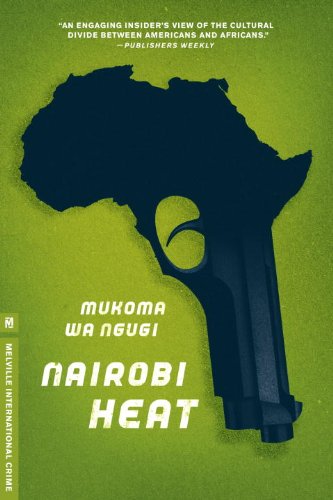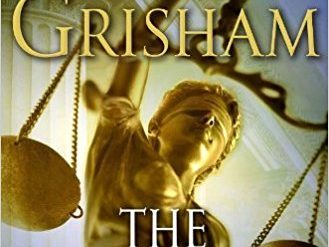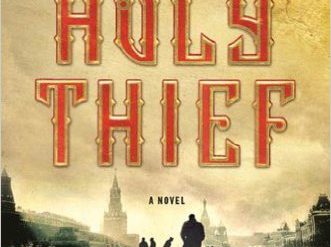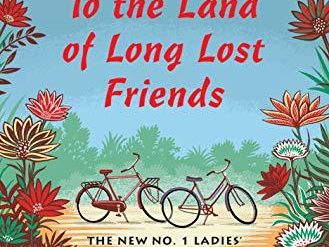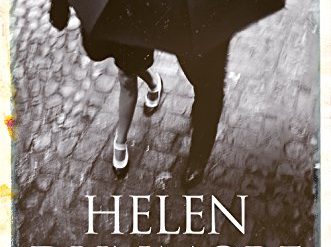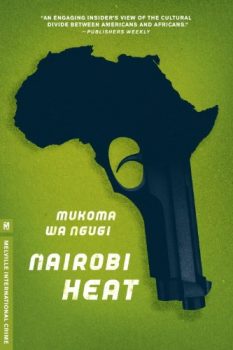
This is not a book for the faint of heart. In the course of its two hundred pages, the body count mounts again and again. In the end, I counted twenty-seven dead. Now, perhaps that’s to be expected in a novel about the Rwanda genocide, when more than a million perished. But it seems a little over the top nearly two decades after the event. And it all unfolds when an African American detective in Madison, Wisconsin, travels to Nairobi to check out the past of an unlikely murder suspect at home. That’s the setup in Nairobi Heat by the Kenyan-American author Mukoma Wa Ngugi.
A charity scam about the Rwanda genocide
The detective’s unfortunate name is Ishmael, with no surname given (and no discernible link to whales or nineteenth-century American literature). Because the murder victim in Madison is “a beautiful young white woman,” Ishmael’s African American chief feels he has no choice but to pursue the case aggressively. So he dispatches the detective to Nairobi to investigate the past of the obvious suspect, a university professor named Joshua Hakizimana, since the young woman’s body turned up (literally) on his doorstep. Hakizimana is widely regarded as one of the heroes of the genocide. “He gave sanctuary to thousands,” it is said. He describes himself as a “teacher of Genocide and also Testimony.”
Nairobi Heat by Mukoma Wa Ngugi (2011) 204 pages ★★★☆☆
Yet in Nairobi, as Ishmael gathers evidence from a Kenyan police detective and Rwandan refugees, it soon becomes clear that Hakizimana is not the man he’s thought to be. In fact, he turns out to be the front man for what can only be described as a charity scam that raises millions ostensibly to help the survivors of the genocide.
Unfortunately, in Ishmael’s quest to learn the full story, many more must die. And Ishmael must come to terms with his own role in the case. As the Kenyan detective tells him, “Ishmael, we are bad people too . . . The only difference is that we might on the side of the good. I hope you have no illusions about that.”
This story should have been set in Rwanda
It’s understandable that the author set his novel in Nairobi. After all, though born in Illinois, he was raised in Kenya and is clearly familiar with the ethnic diversity, the languages, the violence, and the corruption. However, this story could have been much more dramatically told had it taken place in Kigali, Rwanda’s beautiful capital city.
Last year, on the 25th anniversary of the genocide, my wife and I spent several days there to visit the deeply moving Rwanda Genocide Memorial and visit a nonprofit organization my company works with. The experience was revealing. Paul Kagame, Rwanda’s president—dictator, really—was the rebel leader who put a stop to the killing in 1994. Although he is widely faulted for human rights abuses, he has done a spectacular job of rebuilding the country. As of 2019, Rwanda was the world’s second fastest-growing nation. And Kigali is a showcase of what the regime has accomplished—clean, beautifully maintained, and modernizing at a rapid clip.
I doubt very much that Ishmael could have racked up such a large body count had he gone to Kigali instead of Nairobi. I doubt very much that Paul Kagame would have allowed it.
For additional reading
Some time ago, I reviewed Running the Rift by Naomi Benaron. My review is at A brilliant novel of love, hope, and the Rwanda genocide.
Check out 20 top books about Africa, including both fiction and nonfiction.
You might also enjoy my posts:
- Top 10 mystery and thriller series;
- 20 excellent standalone mysteries and thrillers;
- 5 top novels about private detectives; and
- Two dozen outstanding detective series from around the world.
For an abundance of great mystery stories, go to Top 20 suspenseful detective novels (plus 200 more). And if you’re looking for exciting historical novels, check out Top 10 historical mysteries and thrillers reviewed here (plus 100 others).
And you can always find my most popular reviews, and the most recent ones, plus a guide to this whole site, on the Home Page.

